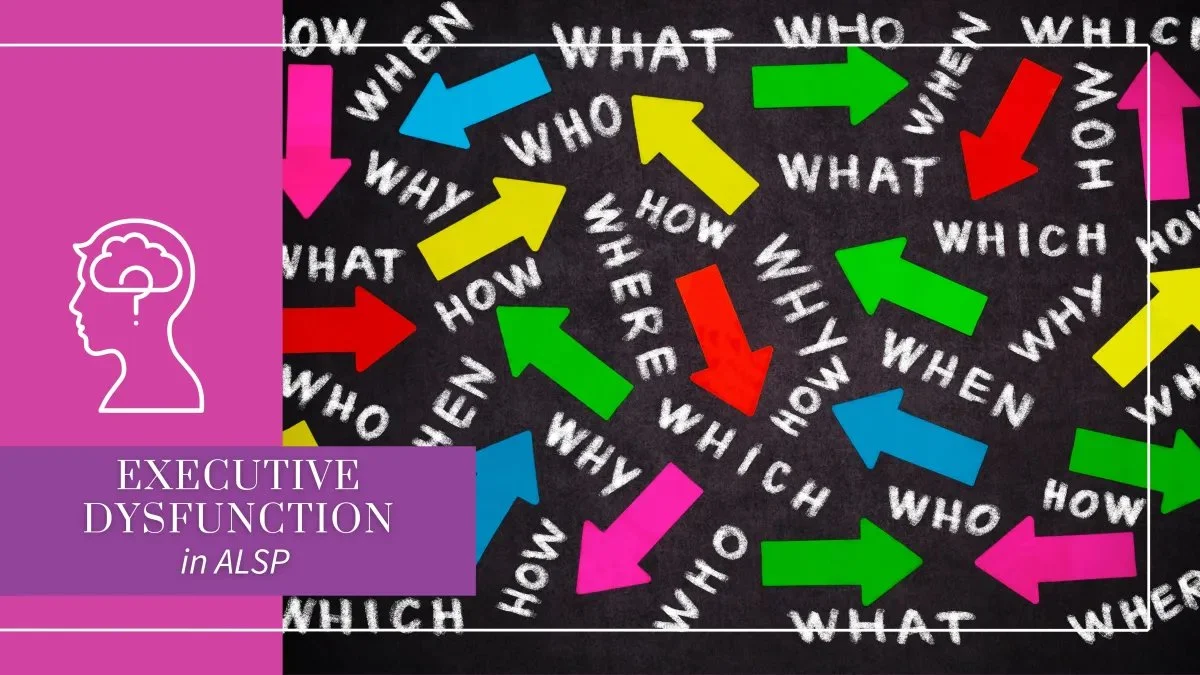Executive Dysfunction
October 15, 2024
“My loved one went from being fiercely independent to being unable to decide what brand of toilet paper to buy at the store.”
“My loved one was a phenomenal athlete who prioritized exercise. Now, he has zero motivation to do anything; he’s content to sit, watching T.V. all day.”
“I feel like I cannot learn new things, and it is affecting my work performance.”
“Why did mom just shove an entire banana in her mouth?”
“My sister went out and bought an expensive new car and didn’t bother telling anyone.”
“My brother went on a shopping spree, buying weird and unnecessary items; his wife had to remove him from all their finances.”
These are all real life examples of executive dysfunction. In certain dementias we hear those words used often – “executive dysfunction,” but very few understand the significant implications of those words. Executive functioning refers to the “mental processes needed to execute purposeful, goal-directed behavior. They refer to things like paying attention, concentrating, planning, self-monitoring, and adapting when needed.” (Executive Dysfunction and MCI | Mayo Clinic Connect) While executive function affects daily life in a variety of ways, doctors really focus on three key areas when speaking of executive functioning.
Working memory: According to Mayo Clinic, working memory isn’t really memory. Working memory refers more to concentration and attention, or keeping track of information that is important for completing an action. Here’s a great example of that in action: “remembering that you had spaghetti for dinner would be short-term memory. Keeping in mind that you have 5 minutes left on the timer for boiling your pasta, while chopping the onions and stirring the sauce, is working memory.” (Executive Dysfunction and MCI | Mayo Clinic Connect)
Cognitive Flexibility: This refers to how well a person can change and adapt to changing circumstances. Examples would be: easily shifting from one task to the next, adapting when things don’t go according to a preconceived plan, and empathetically seeing a situation from another person’s perspective.
Inhibited Control: This refers to how well a person manages their emotions, thoughts, and actions. Essentially it is the internal and external filter.
The frontal lobe of the brain is responsible for managing executive function. (Executive Function: What It Is, How To Improve & Types (clevelandclinic.org)) In ALSP (as well as other forms of dementia), the frontal lobe is damaged. This damage leads to executive dysfunction. This dysfunction is disturbing to witness in someone you love. It is hard to accept the changing reality of who they were and who they are. It is also frightening and frustrating. Many times, patients do not recognize their own executive dysfunction. So, it becomes the job of the care partner to help manage the loss of working memory, the lessening of cognitive flexibility, and the loss of inhibition control. Managing executive dysfunction is multi-faceted and varies person to person depending on the types of dysfunction they most struggle with. Sisters’ Hope Foundation offers resources for dealing with symptoms of executive dysfunction. One example is our: “Challenging Symptoms Tips and Tricks: Disinhibited Behavior.” Check it out here: https://sistershopefoundation.zohodesk.com/portal/en/kb/articles/disinhibited-behavior

